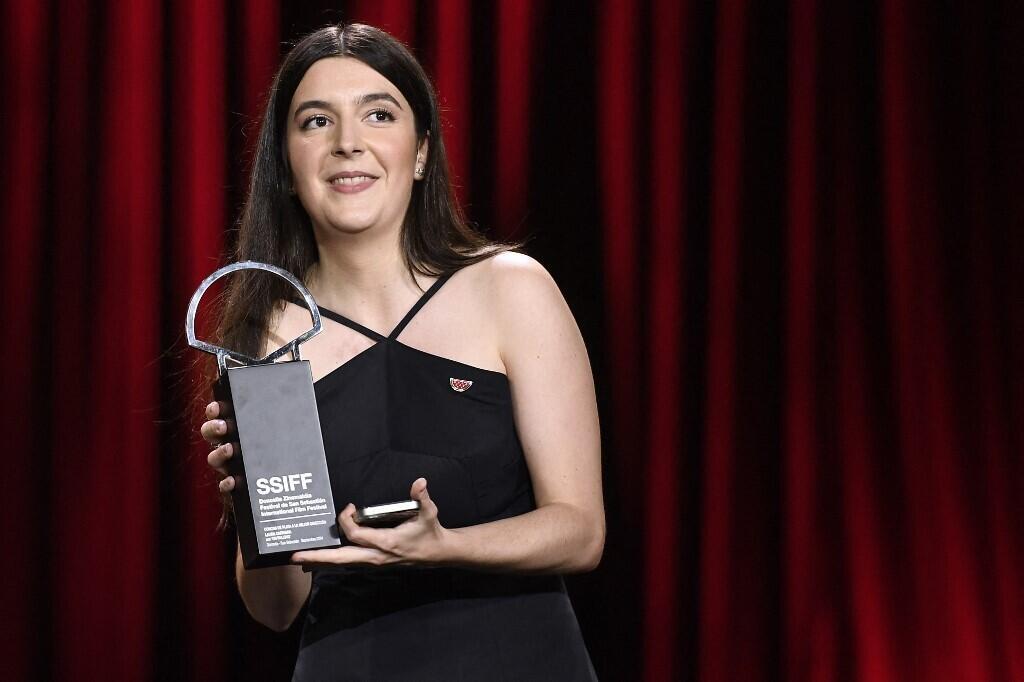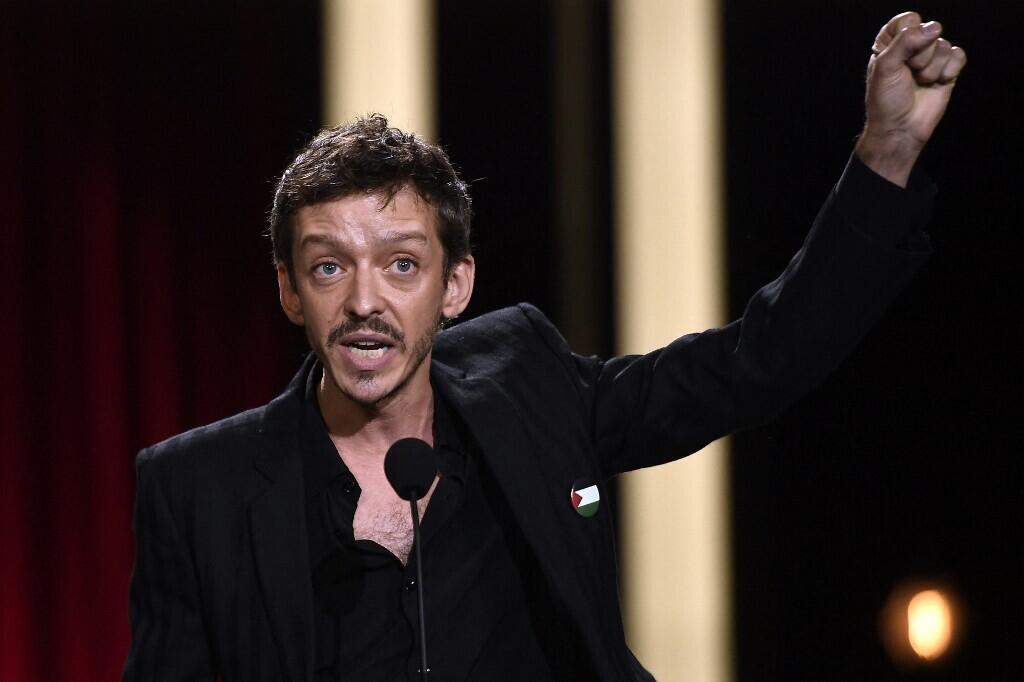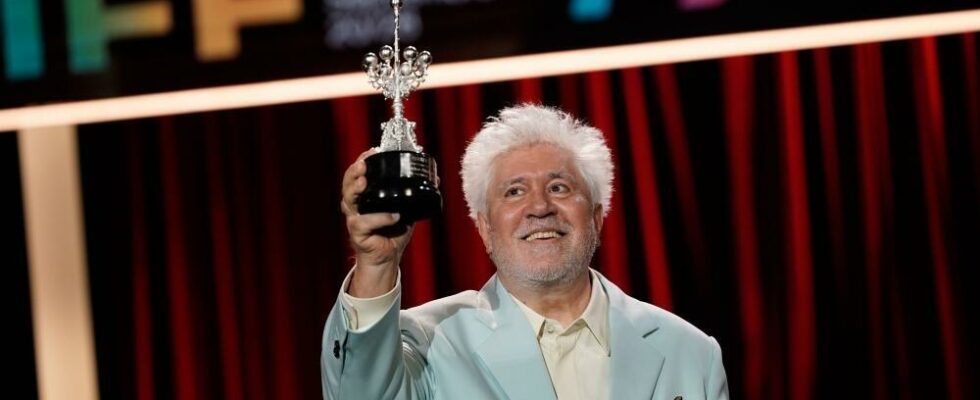The curtain fell on September 28, 2024 on the 72nd edition of the San Sebastian festival. An event which highlighted numerous first films, and therefore young directors, and often proposed reflection on serious, existential subjects such as the pain of living, the transition from life to death, the place of work, sexism.
6 mins
from our special correspondent in San Sebastian,
This is the documentary Soledad Tartesby Albert Serra who won the Concha de oro, the grand prize of the festival. The choice of the film in the official selection had been contested because of its subject, bullfighting, the killing of the animal, and sometimes of its executioner. When receiving his prize, the Catalan director praised the work on sound and image of his collaborators; it is indeed remarkable. This daring and risky film is the product of five years of work and three years of filming, he explained. The spectator is as close as possible to the protagonists of the fight, the Peruvian bullfighter Andrès Roca Rey – new star of the arenas – and his cuadrillahis close guard and the bulls he fights during the nearly two hours of film. The camera follows them from the hotel room to the transfer vehicle, from the combat anterooms to the sand of the amphitheater. It tells of the tension, the fear, the pain, the blood, the man who becomes almost animal in his jousts with the beast, the agony too… A film about death, of raw realism, without pretense, and a a new filmic exercise for Albert Serra, often described as unclassifiable by his freedom and his aesthetic radicality. It was the first time that the Catalan was in contention for the Gold conchaand it was a cinematic masterstroke. The film will be released early next year in Spain and has also been announced in France; we will undoubtedly talk about it again as the subject arouses so much debate.
A cinematic journey on the last journey
The transition from life to death has been a recurring theme in several films such as the latest feature films by Costa-Gavras and Pedro Almodóvar, focused on the end of life (palliative care for The last breath – adapted from the homonymous book by Régis Debray and doctor Claude Grange – and euthanasia with The room next door) and that of the Spaniard Pilar Palomero, The stars, whose main actress, Patricia López Arnaiz, was awarded the prize for best performance in this film which tells the story of the support of a terminally ill person by his loved ones and in particular his daughter.
Infinitely serious and unglamorous subjects, despite Pedro Almodóvar’s always very colorful palette. My film is the story of a woman who is dying in a world in agony, declared the director. Very political subjects too, because they implicitly question the state of our health systems and the relationship between the institution and humans which is deteriorating to the detriment of the latter.
Rewarded for this 72nd edition with Cate Blanchett by a Donostia prize, Pedro Almodóvar delivered during the presentation of his prize a declaration of love for cinema, which saved him “ of many dangers and gave him everything », and a vibrant plea in favor of the freedom to create, to think and generosity. “ Let us do our best so that great tragedies, daily pain, social injustices, everything negative becomes fiction “. A very strong message in which he underlined the danger represented by the xenophobic far right in Spain and the need to welcome migrants, driven out by climate change, conflicts or the quest for a better life. The quest for a better life is also the subject of the young Portuguese director’s first film, Laura Carreiraawarded (tied with the young Spanish director Pedro Martin-Calero for El Llanto of which it is also the first feature film) of the prize for best acting direction. “ People are worth more than profit » said Laura Carreiro when receiving her prize.

“ Aguante el argentino cinema ! »
Defeating what crushes our humanity is also the message that was hammered home by the Franco-Argentinian actor Nahuel Pérez Biscayart, who came to receive the prize for Latino horizons for the movie The jockey by Luis Ortega, of which he is the main actor. A role that seems tailor-made for him as that of this androgynous jockey, a mysterious mutant who must die in order to be better reborn. “ They believe they are freedom activists, but in fact, behind this hatred there is no freedom, just deep loneliness » he said, referring to the government team of the libertarian president Javier Milei. Argentine cinema is exported and generates profits, he recalled, taking the opposite view from the official discourse according to which national cinema is a pit of public money which produces nothing. Like in 2023a movement in support of Argentine cinema, subject to drastic cuts in government aid, was organized in the middle of the week, in the presence of the teams of some 26 films offered this year in San Sebastian. Comedian Ricardo Darín supported the rally in a video message.

“ A country without culture is a country without a rudder », underlined the actress and director Maria Alchemain performer in the film by Chilean José Luis Torres Leiva, Cuando las nubes esconden las sombras. How many films will we be able to offer in 2025, asked another protagonist, two or three? “ Aguante el argentino cinema ! » (“ Argentine cinema, hold on ! », in French), this was the watchword of this operation. An injunction that could be extended to other cinemas and to culture in general: let it hold firm, and let festivals like that of San Sebastian continue to keep it alive.
► The complete winners of the 72nd edition of the festival (SSIFF)
